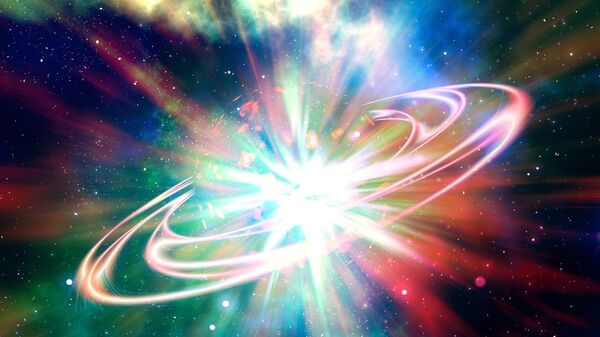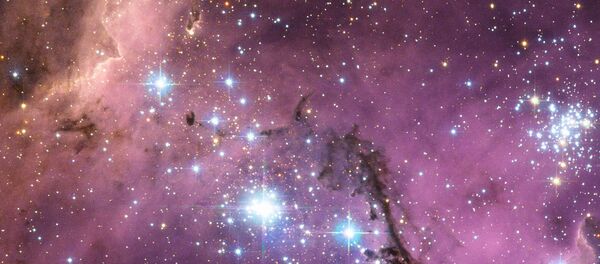The research was published in The European Physical Journal C.
"Regard for a new class of singularities (infinite state of a parameter) makes our universe's future unpredictable and dangerous. This research indicates that certain singularities could emerge suddenly and practically at any time. Neither stars nor even galaxies would survive a disaster like this," BFU Professor Artyom Yurov, a co-author of the research, told Sputnik.
At the turn of the 21st century, space science made a number of important discoveries, such as indirect proof of the universe's inflationary expansion, dark matter and dark energy, gravitation waves and more. In 1998, it was found that the universe was expanding at an accelerated rate.
READ MORE: Universe Is Finite? Stephen Hawking's Final Theory Published
Scientists believe that the acceleration is caused by the so-called "dark sector" of the universe. Observations have shown that well-known baryonic matter is just 4.9% of the universe, with the "dark sector" composed of the mysterious dark matter (26.8%) and even more mysterious dark energy (68.3%) accounting for the remaining 95.1%.
"The future of the universe depends on which of these models is true. If the second hypothesis is correct and dark energy is really a quintessence, then the future may hold a lot of amazing and unpleasant surprises. In particular, singularities are likely to appear during accelerated expansion! For example, the medium pressure of the quintessence could suddenly 'explode'," Mr. Yurov said.
Cambridge University Professor John Barrow made calculations in 2004 showing that a catastrophic event like this was possible. A more extensive mathematical study of this enabled physicists Sergei Odintsov, Shinichi Nojiri and Shinji Tsujikawa to classify possible catastrophic singularities.
READ MORE: Cosmic Meal: NASA May Have Spotted Young Star Devouring Nearby Planet
Led by Prof. Yurov, a team of BFU physicists has assumed and shown that there could be an entire class of singularities not covered by the Odintsov-Nojiri-Tsujikawa classification. This means that the universe could suddenly perish. Other researchers have taken an interest in their work, with John Barrow responding in a letter to the team.
"The model in question is one of the hundreds of hypotheses that model the birth and death of the universe. The BFU team has correctly reviewed a model with a specific potential of the scalar field and have shown that the scale factor can dramatically change its behavior. This research is of great interest to physicists. We should keep it in mind for the future, because it obviously doesn't contradict modern observational data," Professor and space researcher Sergei Rubin of the NRNU MEPhI told Sputnik.
BFU scientists say that this research is supported by the 5-100 Program for International Competitiveness Enhancement.





